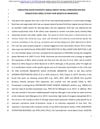 January 2018 in “bioRxiv (Cold Spring Harbor Laboratory)”
January 2018 in “bioRxiv (Cold Spring Harbor Laboratory)” Auxin helps root hairs grow in high phosphate by affecting ROS and involving RSL2 and RSL4.
 106 citations,
April 2010 in “ACS Nano”
106 citations,
April 2010 in “ACS Nano” C60 fullerenes can alter protein function and may help develop new disease inhibitors.
 20 citations,
October 2018 in “Physics and chemistry of liquids”
20 citations,
October 2018 in “Physics and chemistry of liquids” Minoxidil dissolves better in ethanol-water mixtures at different temperatures, with water playing a key role.
 30 citations,
October 2015 in “Journal of Ethnopharmacology”
30 citations,
October 2015 in “Journal of Ethnopharmacology” Herbal compounds like ricinoleic acid, quercetin-3-O-rutinoside, and hinokiflavone may be safe and effective for treating hair loss.
 December 2011 in “Drug Research”
December 2011 in “Drug Research” The document shows the state of pharmaceutical patents as of 1999, focusing on treatments for various diseases.
 284 citations,
February 2008 in “Pediatrics”
284 citations,
February 2008 in “Pediatrics” Chemicals and body size might change when puberty starts and progresses, but more research is needed to confirm this.
 23 citations,
June 1996 in “Toxicology”
23 citations,
June 1996 in “Toxicology” Older rats more affected by minoxidil's cardiotoxic effects than younger rats.
 33 citations,
November 2006 in “Survey of Ophthalmology”
33 citations,
November 2006 in “Survey of Ophthalmology” Madarosis is the loss of eyelashes and eyebrows due to various health issues and requires thorough examination to diagnose and treat the underlying cause.
 9 citations,
November 2018 in “Drug Discovery Today”
9 citations,
November 2018 in “Drug Discovery Today” Using skin stem cells and certain molecules might lead to scar-free skin healing.
79 citations,
December 2017 in “Cosmetics” Effective sunscreen formulations can reduce skin absorption and enhance protection.
 14 citations,
January 2017 in “Pharmacological Reports”
14 citations,
January 2017 in “Pharmacological Reports” TP0427736 may help treat hair loss by blocking a specific protein and promoting hair growth.
 9 citations,
May 2013 in “JAMA Dermatology”
9 citations,
May 2013 in “JAMA Dermatology” Sunlight exposure improved a patient's skin condition, and there may be a link between a certain disease and skin growths; a leukemia treatment caused changes in hair color and growth.
February 2024 in “Cancers” New treatments targeting androgen receptors show promise for drug-resistant prostate cancer.
 July 2018 in “Elsevier eBooks”
July 2018 in “Elsevier eBooks” Some drugs can cause reversible hair loss, but certain chemotherapy drugs may lead to permanent hair loss; drugs can also change hair color and texture.
 5 citations,
December 1942 in “Journal of the American Medical Association”
5 citations,
December 1942 in “Journal of the American Medical Association” Choline and biotin are important for liver health and preventing certain deficiencies in animals, and more research is needed to understand their benefits in humans.













